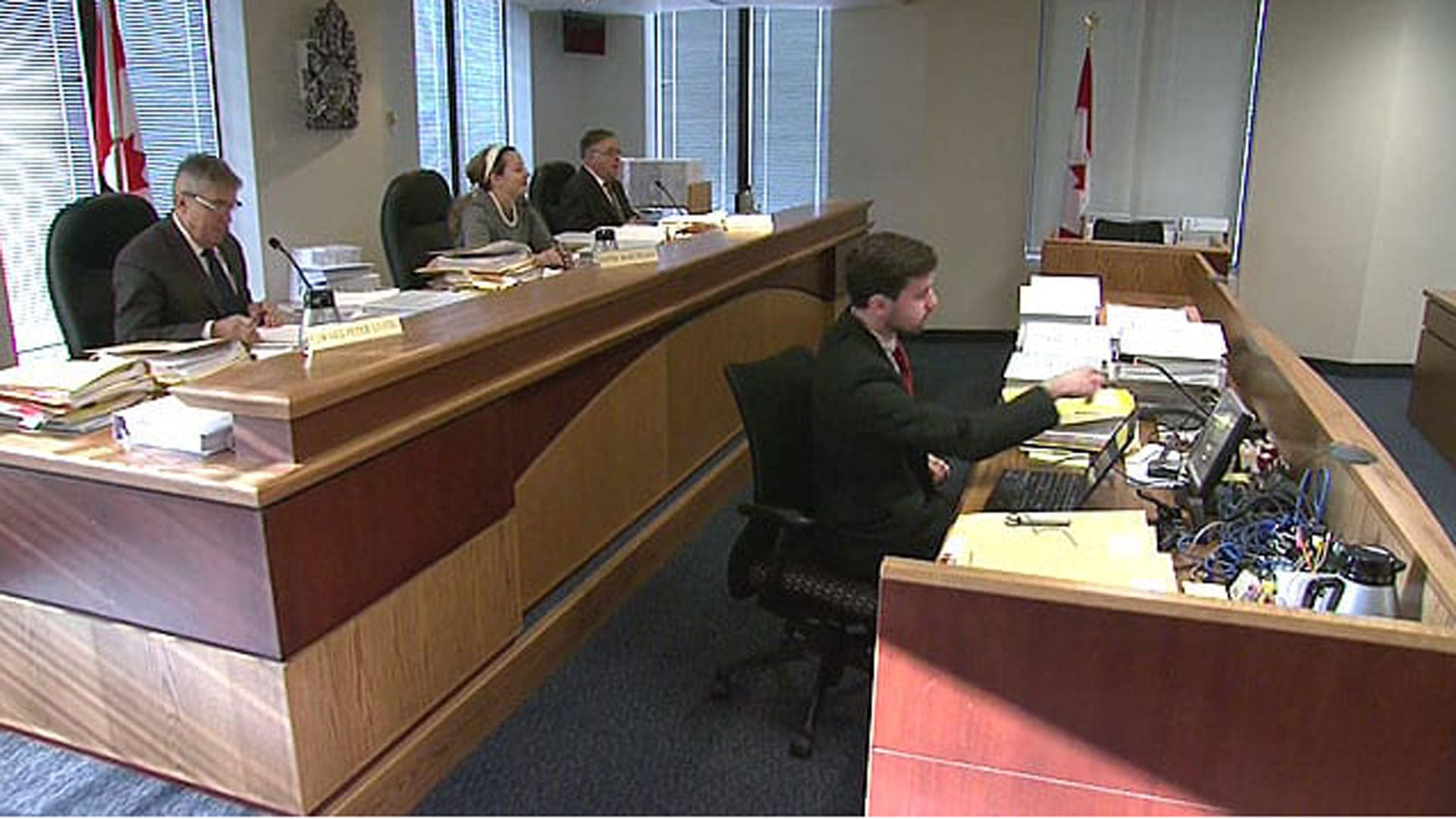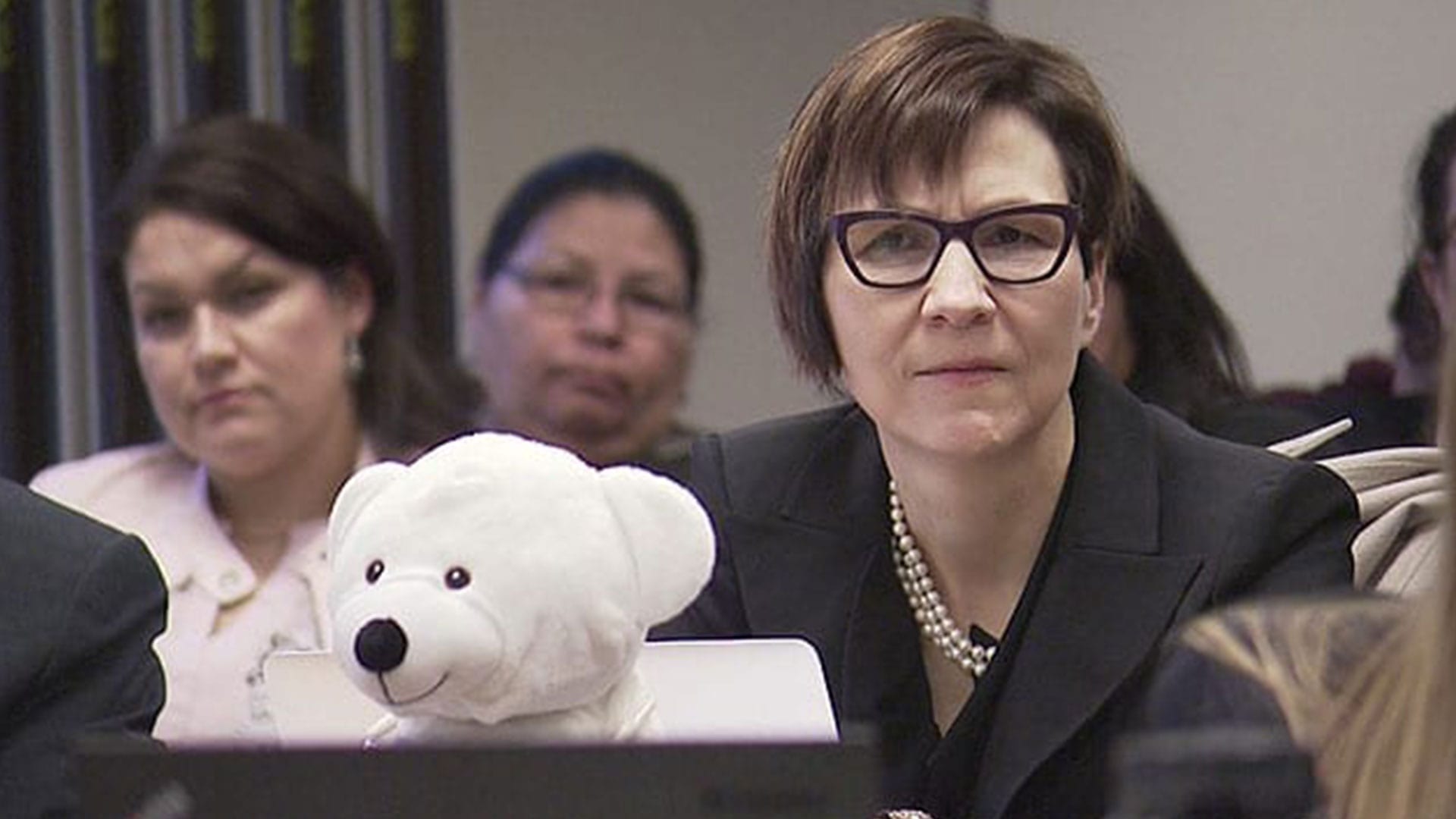The Canadian government will appeal a Federal Court decision to uphold compensation for First Nations families torn apart by the deliberately underfunded child-welfare system.
Indigenous Services Canada filed the last-minute legal challenge in the Federal Court of Appeal Friday afternoon just before it closed, taking the fight to the appellate court for the second time in 14 years.
Cindy Blackstock, who along with the Assembly of First Nations (AFN) filed the original complaint in 2007, told APTN National News she was disappointed with the move.
“I’ve always felt like this case is about ending discrimination against kids and trying to make some reparations for the victims that were hurt,” said Blackstock, executive director at the First Nations Child and Family Caring Society. “It’s disturbing to see that the federal government is not yet fully able to put down its sword of litigation against First Nations children.”
In 2019, the Canadian Human Rights Tribunal ordered Canada to pay the statutory maximum of $40,000 to victims unnecessarily taken from their communities and placed in foster care because of racist and inequitable federal funding practices.
The quasi-judicial panel of human rights experts ruled Ottawa’s “wilful and reckless” discrimination caused “pain and suffering of the worst kind warranting the maximum award” for tens of thousands of kids and caregivers.

But the Canadian government sought judicial review in Federal Court trying to have the order quashed. The review was heard in June this year.
A few months later, Justice Paul Favel ruled against Ottawa. He said Canada “has not succeeded in establishing that the compensation decision is unreasonable.”
He said the tribunal “reasonably exercised its discretion” under the human rights act “to handle a complex case of discrimination to ensure that all issues were sufficiently dealt with.”
The 30-day window to challenge this decision closed at 4:30 p.m. ET when the Federal Court of Appeal shuttered for the weekend. Spokespeople for the involved ministers had no comment when reached by APTN around noon.
The appeal filing said Canada “acknowledges the finding of systemic discrimination and does not oppose the general principle that compensation to First Nations individuals who experienced pain and suffering as a result of government misconduct should be provided.”
But the filing said the tribunal’s order was “inconsistent with the nature of the complaint, the evidence, past jurisprudence and the Canadian Human Rights Act.”
Filing is a ‘protective appeal’ say feds
The prime minister said earlier Friday that an announcement was coming but not what it would be. “Ministers are actively working on this even this morning in Ottawa,” said Justin Trudeau beside the Dutch prime minister at a press conference in the Netherlands.
Trudeau reiterated that Ottawa is committed to compensating First Nations kids but has previously indicated he would rather settle a class action.
“We are committed to working with partners to end this harmful system and to make sure that kids at risk get to stay in their communities, in their culture and be cared for by their communities,” Trudeau continued. “That is the path forward on reconciliation and that is what we are pledged to do.”
The government said later in a news release that the filing is “a protective appeal” that will only be actively litigated if Canada, the caring society and AFN can’t negotiate a solution in the coming months.
“We have agreed to sit down immediately and work towards reaching a global resolution by December 2021,” said ministers Patty Hajdu, Marc Miller and David Lametti in a joint statement. “The appeal will be on hold and the focus will be squarely on reaching an agreement outside of court and at the table.”
Confidential talks around a related but separate class-action lawsuit have already been going on for some time.
History of a long legal battle
The original complaint said First Nations kids got about 22 per cent less cash through the on-reserve child and family services program than they would’ve if they got services through the province.
The advocacy organizations argued the practice was racially discriminatory and thus illegal under the Canadian Human Rights Act.
“There are three time as many Aboriginal children in state care today than there was at the height of the residential school operations in the late 1940s,” the complainants noted in 2007.
The Conservative government under prime minister Stephen Harper fought it. The Tories spied on Blackstock, blocked her from meetings, motioned to have the complaint dismissed and knowingly refused to disclose 90,000 “highly relevant” documents when a 70-day hearing began 2013.

But the government failed. In 2016, the tribunal substantiated the complaint in a landmark 182-page ruling.
The panel said Ottawa’s racially discriminatory behaviour perpetuated “historical disadvantage and trauma suffered by Aboriginal people, in particular as a result of the residential schools system.”
It ordered Canada to immediately reform First Nations child welfare and properly implement Jordan’s Principle, a legal rule Ottawa must follow to ensure First Nations kids don’t suffer unreasonable delays when trying to access essential health and social services.
Trudeau’s government welcomed the orders and promised to comply. The government injected billions into the neglected Jordan’s Principle program and passed the child welfare reform law known as the Act respecting First Nations, Inuit and Métis children, youth and families.
In 2019, the panel issued the compensation order, its first challenged by the Liberals. The tribunal said Canada’s discrimination was a “worst-case scenario” under federal human rights law.
A year later the tribunal concluded Canada was still not fully implementing Jordan’s Principle. The panel ordered Canada to consider some non-status First Nations kids living off reserve eligible to receive services.
This was the second order the Liberals tried to appeal and the second judicial review rejected by Favel.
The Liberals filed their third judicial review on Sept. 24 after the panel ordered Canada to fund First Nations child welfare agencies so they can build or buy property, buildings, vehicles and other infrastructure required to deliver services.
No date for a hearing has been set.
Opposition parties slam decision
The ministers said at a Friday evening news conference that the Liberals are committed to dropping the appeal once a solution is negotiated, but opposition parties slammed the move.
NDP Leader Jagmeet Singh, who spent the last few months urging the Liberals to drop the case, said it was “deeply disappointing” but not surprising.
“Justin Trudeau had an opportunity to finally do the right thing,” said Singh in a release. “But instead, he chose to continue spending millions of dollars fighting Indigenous children instead of compensating them for the discrimination they’ve faced—and continue to face—at the hands of this very government.”
Conservative MP Jamie Schmale, who served as Crown-Indigenous relations critic before the last election, offered a similar sentiment in an emailed statement.
“This decision has gone against countless calls made by Indigenous advocates and community leaders,” said Schmale. “For too long, Indigenous peoples have been waiting for the Liberal government to deliver on their empty promises and commitments to reconciliation.”
—With files from APTN National News










